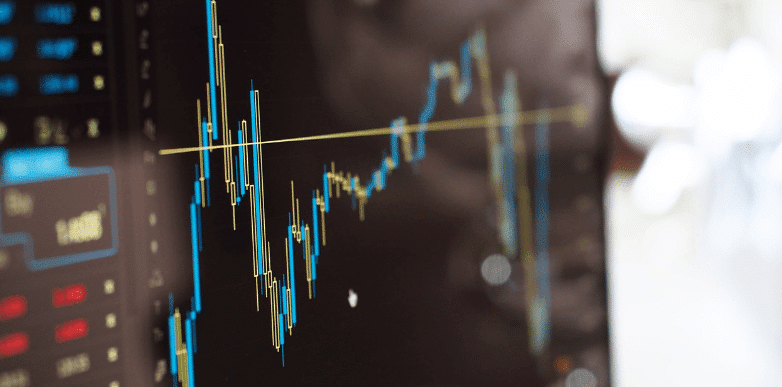Is the Forex Market More Susceptible to Fraud?

Regulators Uncover Rampant Fraud Among Top Forex Trading Desks
Forex spot trading is among the most voluminous and valuable financial activities in the world. It is a highly liquid instrument that is subject to the influence of complex geopolitical and economic conditions, and as such Forex spot prices have commonly been regarded as well-insulated from the threats of fraudulent manipulation. But of course, where there’s a will there’s a way, and some of the biggest movers in the market were just caught colluding to manipulate the prices of 11 popular currencies – the US, Canadian, New Zealand, and Australian Dollars; Euro; British Pound; Japanese Yen; Swiss Franc; and Danish, Swedish and Norwegian crowns.
In what appears to be an extension of the scheme exposed by New York state financial regulators earlier this year, the European Commission recently announced it has reached a settlement in an enforcement action against five big banks. The banks organized two separate cartels – one involving Barclays, the Royal Bank of Scotland (RBS), Citigroup, and JP Morgan and a second involving Barclays, RBS, and MUFG Bank (formerly Bank of Tokyo-Mitsubishi) – to manipulate spot prices in Forex exchanges across Europe. And as the story unravels, regulators are identifying a common thread among the numerous co-conspirators: their use of eComms channels to carry out their conspiracies.
What Makes Forex Markets Unique?
Forex markets are vast; most major financial institutions maintain a foreign currency trading desk, and it is a common financial activity for individuals and small-cap traders. However, Forex markets are also highly leveraged and fast-paced, and they offer multiple exotic instruments. In fact, U.S. regulators have identified a sharp increase in fraud and scams related to Forex trading, and the highly leveraged nature of trading Forex trading raises unique risk and exposure issues and can make it very difficult to detect price manipulation. This is particularlForex Markey when it is perpetrated by traders at major financial institutions that are meant to compete against one another.
Much as a result of the fast-paced and sophisticated nature of Forex trading, there is an unfortunate history of collusion and conspiracy to manipulate Forex markets both in the EU and abroad. Even before the Standard Chartered scandal broke earlier this year, U.S. financial regulators carried out a 2012 raid on dozens of foreign exchange traders in New York, resulting in 47 arrests. In this case, a single undercover FBI agent was able to expose 123 rigged trades that took place over just a few months – and as shocking as this may seem, it appears that the problem of market manipulation among Forex traders goes further than originally thought.

Forex markets are vast and volatile
Over the past several years, EU financial regulators have detected everything from price rigging, price manipulation, pre-arranged trades, and front running to cross-product manipulation and the standard detection scenarios for Algo-Trading. And unfortunately, all this is being complicated even further by the proliferation of eComm platforms used by forex traders.
eComms Play a Major Role in Forex Market Manipulation
As if the current scenario isn’t complicated enough, the ongoing proliferation of new electronic communication channels will only make it harder to detect Forex market manipulation. The European Commission has been investigating this particular collusion scheme for over six years, and during the course of the investigation, it became clear that ineffectively monitored eComms channels played a major role.
The Forex traders involved in the Forex market manipulation conspiracy dated back to 2007, used online professional chatrooms common among many enterprises. Today, even as traders adopt social media and mobile chat technologies as an increasingly convenient means of communication, more technologies are emerging. And given the inherent challenges associated with eComms surveillance, many banks are facing an uphill battle in ensuring their compliance departments are equipped for the job.
The proliferation of eComms channels is raising novel challenges for compliance departments in financial institutions around the world. Traders are using a greater diversity of electronic communication applications, and when searching eComms for potential fraud or collusion many banks still rely on legacy software that uses outdated or ineffective search technologies. Even though regulatory requirements and effective internal investigation strategies are becoming more data-driven, most compliance data is still siloed away, isolated from the context in which it provides the most value. This has allowed Forex traders at some of the world’s most prestigious financial institutions to flagrantly violate European and American financial protection laws.
If the recent $1.2 billion enforcement action shines any light on this issue, it’s the fact that today’s many eComms channels raise a huge threat for misconduct in financial institutions trading FX. Chat rooms may be a thing of the past, but only because eComms are becoming more and more decentralized. Traders need only reach for their mobile phones to find an application suitable for colluding to manipulate Forex markets, and unless they are effectively deterred there is no reason to believe they will not do so.
Related Articles

Maturity Guide
Subscribe to Shield’s Newsletter
Capture everything. Deploy anywhere. Store in one place.


